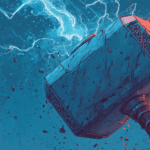The German BSI Alert: A Critical Warning
The BSI’s alert brings to light the precarious state of Microsoft Exchange servers across Germany, with around 37% of systems found to be critically vulnerable. This includes outdated versions such as Exchange 2010 and 2013, which make up 12% of the installations and have not been updated since October 2020 and April 2023, respectively. Additionally, nearly 28% of the servers running newer versions like Exchange 2016 and 2019 are missing essential patches for critical security flaws that could be exploited in remote code execution attacks.
The BSI’s warning about the vulnerabilities in Microsoft Exchange servers in Germany highlights a crucial aspect of cybersecurity: the inadequacy of relying solely on patching, especially for systems that have been exposed online. The alert reveals that a significant percentage of these systems remain critically vulnerable due to outdated versions or missing patches for known security flaws. This situation indicates that, while patching is a necessary step in cybersecurity maintenance, it is not sufficient on its own. For systems that have been exposed to the internet and potentially compromised before the application of patches, conducting a thorough compromise assessment is an essential next step. This assessment determines the extent of any breach and the presence of attackers within the network, guiding the necessary response to secure the compromised systems.
Patching and the Critical Need for Compromise Assessment
Patching plays a crucial role in protecting Microsoft Exchange servers from cyber attackers by addressing known vulnerabilities. However, vulnerabilities can be exploited before patches are applied, leaving organizations unknowingly at risk. This underscores the need for compromise assessments, especially after applying patches to previously vulnerable systems.
Compromise assessments are vital for determining if a system was compromised before the patch was implemented. These assessments help identify whether attackers have remained dormant within the network, potentially engaging in malicious activities such as credential dumping and lateral movement. Identifying signs of a successful attack early can prevent a minor breach from escalating into a more severe and extensive compromise. Given the complexity and expertise required for thorough assessments, automated solutions like THOR Cloud Lite offer a practical and efficient alternative to manual investigations.
Automated Compromise Assessments with THOR Cloud Lit
For those seeking an automated approach to compromise assessments, our THOR Cloud Lite offers a practical solution. While the full THOR Cloud service is slated for release in Q2/2024, THOR Cloud Lite is currently available and provides a robust set of features tailored for efficient and automatic compromise assessments.
THOR Cloud Lite utilizes a comprehensive, though reduced, open-source rule set and a selection of THOR’s advanced modules to effectively uncover evidence of the exploitation of vulnerabilities. This focus on post-exploitation activities allows organizations to swiftly identify signs of compromise, such as lateral movements, credential dumping, and other indicators of malicious activity within their network.
Benefits of Using THOR Cloud Lite for Your Security Strateg
- Efficient Detection: Leverage the power of THOR Cloud Lite to detect signs of exploitation with significantly less effort and time compared to manual investigations.
- Accessibility: With THOR Cloud Lite, organizations can start enhancing their cybersecurity posture immediately, taking advantage of up to 30 scans per month without any cost.
- Preparation for THOR Cloud: As we prepare for the launch of THOR Cloud, users of THOR Cloud Lite can familiarize themselves with the process of automated compromise assessments, setting the stage for a seamless transition to the more comprehensive features THOR Cloud will offer upon its release.
THOR Cloud Lite represents an effective step forward in automating compromise assessments, providing organizations with a valuable tool in their cybersecurity arsenal as they await the full capabilities of THOR Cloud.










